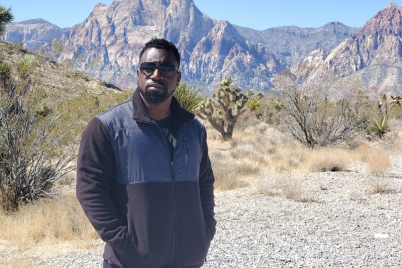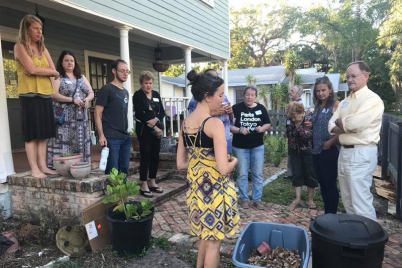Gwendolyn Reese, representative of the Black Health Equity Alliance, Inc.
BY NICOLE SLAUGHTER GRAHAM, Staff Writer
ST. PETERSBURG — Across the country, cities, counties, and states have declared racism a public health crisis. Many places, such as Wisconsin, aren’t just acknowledging the longstanding inequities caused by systemic racism; they are also putting actionable measures forth to combat the effects racism has in terms of public health.
For example, Wisconsin’s order acknowledges that racism directly contributes to inequities in housing, education and job opportunities. The declaration and subsequent measures would hold the city accountable for ensuring opportunities across all spectrums are equal.
Now, the Black Health Equity Alliance, Inc. and the League of Women Voters of St. Petersburg are asking the City of St. Petersburg to do the same. Representatives of both organizations, Gwendolyn Reese and Linsey Grove, respectively, worked together to write the declaration and secure city buy-in. The two women also reached out to several community organizations and businesses for support.
Of the 159 companies, organizations, and individuals contacted, more than two-thirds reported that they supported a city-wide declaration and actionable measures to move forward toward a more equitable future for St. Petersburg.
Though city councilwoman Amy Foster quickly responded in support of putting a declaration in front of the council for a vote and a version of the original document was scheduled for a vote during the November council meeting, Reese and Grove decided to pull it from the agenda.
“We asked the proclamation to be pulled so we could work collaboratively with the city to craft a more comprehensive resolution with actionable items attached to it,” said Reese. “It’s more important that this be done right than done fast.”
This month, a tentative meeting is scheduled for Reese, Grove and Foster to determine steps to move forward with the proclamation.
In its current form, the proclamation gives a brief but necessary history of the longstanding effects of racism at the national, state and city levels. It also highlights that cities, states, and counties around the country — including Hillsborough County and the city of Bradenton — have declared racism a public health crisis, as well as several national organizations such as the American Public Health Administration and the American Academy of Pediatrics.
Most importantly, though, said Reese and Grove, the proclamation provides actionable steps the city can take to commit to improving Black residents’ lives proactively.
“Without actionable items, it’s just a proclamation, but it doesn’t hold the city accountable for anything, thereby rendering the proclamation useless,” said Reese.
Grove said the city must show its citizens that it will take action, especially now.
“We’re acknowledging that this is impacting the health of our community and we have to take action to rectify that. This shows that St. Pete is holding itself accountable. It says we acknowledge racism as a public health issue, we’re working on it, and this is how we’re working on it. This is really important in a time where people are really frustrated with the government and lack of transparency.”
Both Reese and Grove said that a city-wide proclamation of this kind is long overdue, but the current national conversation around race and the COVID-19 pandemic makes this kind of measure timely.
“We’ve been talking about inequities for 25 years or more, but white people weren’t willing to have these discussions. They were able to deny it,” she Reese. The inequities created by COVID-19 make it so that it’s no longer able to be denied. It seems that more people are willing to have these conversations and say the word racism because it’s been proven that racism is the cause of these inequities.”
Grove said she’s fielded many questions on why the League of Women Voters — a nonpartisan organization — would align themselves with an issue that has been so polarizing for so many.
“This completely aligns with the way the League wants to be a better partner and accomplice, and a stronger ally to communities have been historically oppressed.”
With the recent 100th anniversary of the passing of the 19th Amendment and the organization’s inception, Grove said it’s important to remember all the suffragists. Since Black, Brown, and disabled women were not celebrated back then, they promise to do what’s necessary to ensure the movement is equitable and highlights marginalized women’s needs in the future.
“It’s really important that we acknowledge that a lot of people were left out, and it took decades to recognize and fight for enfranchising more groups,” Grove said. “This is just one piece — a necessary piece — in how we can leave a legacy that’s more inclusive as we look forward to the next 100 years.”








